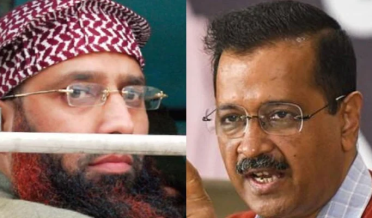Starmer says asylum system ‘utterly broken’ by Tories
Aims special report
Tories Chief Keir Starmer went on asylum, and small boats. That should tell you the key point about today’s PMQs. Historically, immigration, and anything related to it, has been a losing issue for Labour (just as the NHS has been a losing issue for the Tories). But the day after Rishi Sunak published an illegal immigration bill clearly weaponised for political purposes, Starmer marched towards the gunfire.
It was a sign of confidence. And that confidence was merited because, at the very least, Labour can easily hold its own against the Tories on this issue.
Ed Miliband or Jeremy Corbyn would have avoided the topic because draconian asylum policies that tend to poll well with floating voters, and are hugely popular with the papers they read, tend to make Labour party members and MPs recoil with horror. When Miliband was leader, there was a row just because he put the slogan “controls on immigration” on a party mug. This explains the thrust of the Sunak attack today, as he claimed that Labour just favours “unlimited asylum” (see 12.05pm) and is opposed to all controls. Here is a flavour of it. Sunak said:
The reality is on this issue, [Starmer] has been on the wrong side … of this issue his entire career. He described all immigration law as racist. He said it was a mistake to control immigration. And he has never, ever voted for tougher asylum laws. It is clear while he is hock to the open border activists, we’re on the side of the British people …
He wanted to, in his words, scrap the Rwanda deal, he voted against measures to deport foreign criminals and he even argued against deportation flights. We know why, because on this matter he talked about his legal background, he’s just another leftie lawyer standing in our way.
As a line of attack, there is probably some mileage in it. There are people who don’t like “leftie laywers”. But this sort of rhetoric only appeals to the core vote. More importantly, it is just not true to say that Labour is proposing unlimited asylum. It is a sign of how desperate this all sounded that the point about Starmer calling all immigration law racist came from a Guido Fawkes blog, quoting something Starmer wrote 35 years ago.

(Incidentally, Starmer was right on this. The Home Office itself said in an internal report that “during the period 1950-1981, every single piece of immigration or citizenship legislation was designed at least in part to reduce the number of people with black or brown skin who were permitted to live and work in the UK”. But you can see why Starmer won’t to make that argument during an election campaign.)
The convention Tory attack lines about Labour and asylum don’t work partly because policy has firmed up over Labour. More importantly, the fact that Starmer led the Crown Prosecution Service gives him considerable credibility on this. “When I was in charge of prosecutions I extradited countless rapists and the conviction rate for people smuggling was twice what it is today,” he told Sunak.
But mainly it is because the government’s record is so dire. Starmer illustrated this effectively, highlighting the fact that only 21 people have been removed from the UK as a direct result of the Nationality and Borders Act provisions making them ineligible to declare asylum, and that processing rates are now below 1%.
Do refugees have a ‘safe and legal’ route to the UK?
Refugee groups argue that the UK offers no “safe and legal routes” for asylum seekers – as they cannot get in without a visa – but visas cannot be granted solely for the purpose of seeking asylum.
The government is stepping up its bid to stop migrants crossing the Channel in small boats with a new set of legislation. This week the Illegal Migration Bill will be presented in the House of Commons – and will reportedly include a ban on asylum claims for anyone who arrives in the UK illegally. Refugee groups have said this would effectively “shut down” remaining legal routes for refugees claiming asylum.
Here Sky News looks at what the plans are and where they leave people fleeing their home countries.
What’s in the plan?
Amid soaring numbers of small boats arriving in the UK, the government has made repeated pledges around illegal immigration in recent years.
It put forward its New Plan on Immigration in 2021, which saw the Nationality and Borders Act passed in April last year.
This increased prison sentences for people who smuggle migrants into the UK – and the migrants themselves (from six months to four years). It also introduced new ‘inadmissibility’ rules, which means the Home Office is now not obliged to process an asylum claim if that person has travelled through or has linked to another ‘third country’. But the new bill being put forward this week is reported to go a step further with three new proposals:
They are:
- To stop anyone arriving in a small boat from subsequently claiming asylum
- To withdraw their right to appeal against automatic exclusion from the asylum system – or appeal again after they’ve been deported.
- To prevent people using the Human Rights Act to block their deportations through the courts.
Prime Minister Rishi Sunak said in December these changes would ensure “the only way to come to the UK for asylum will be through safe and legal routes”.
Home Secretary Suella Braverman added: “It has to be that if you come here illegally you will be detained and swiftly removed.”
To be eligible to seek asylum you must have already left your country and be unable to go back for fear of persecution on the grounds of race, nationality, religion, political opinion or sexual orientation.
You cannot claim asylum from outside the UK. Seeking asylum is not the same as applying for a visa, which is granted before someone travels to the UK.
Similarly, the government’s “safe and legal” immigration routes for refugees are different to the asylum seeker system.
Currently the “safe and legal immigration routes” are:
UK Resettlement Scheme – for refugees in camps whose neighbouring countries are at war or there is instability
Community Sponsorship – whereby already resettled refugees are matched with local organisations.
Mandate Resettlement Scheme – for refugees who already have a close family member in the UK.
Refugee family reunion visas – for immediate relatives of refugees already in the UK. For the year ending September 2022 most refugees who were successfully resettled in the UK were from Syria (56%), Sudan (15%), and Iraq (11%).
Afghanistan, Ukraine and Hong Kong
Far more people arrive legally in the UK through a small number of country-specific schemes than they do via the more general refugee resettlement ones.
While only 1,391 people successfully accessed the refugee resettlement scheme in the year to September 2022, 186,893 arrived through two Ukrainian schemes, 12,300 via two for Afghan nationals, and 144,576 through one for Hong Kong residents with British National Overseas status.
‘Legal routes often inaccessible’
According to the latest briefing for MPs: “Safe and legal routes are often inaccessible” because “people who are being persecuted do not have the time to research the safe and legal routes into a particular country”.
It also says that “Home Office officials recognise that, in practice, there are safe and legal routes from some places and not from others”.
In December the prime minister said new Home Office guidance will no longer consider Albania an unsafe country, automatically rejecting “thousands” of applications from there – and effectively removing their right to claim asylum.
There has been criticism of the Afghan resettlement schemes for letting many who put their lives at risk for the British Army fall through the gaps.
“Apart from a limited number of Afghans, Ukrainians and people from Hong Kong, there is no legal route for asylum seekers.
Can the government deport everyone who arrives in small boats?
According to the Refugee Council, two thirds of the people who arrived in small boats last year were eligible for asylum.
And more than 80% of those from some of the top countries – Afghanistan, Iran, Eritrea, Sudan and Syria – had their applications approved. But it says by blocking their claims automatically, the government would leave 45,000 migrants “stuck in limbo facing long periods locked up in detention” each year.
Under the UN Refugee Convention, people escaping war or persecution cannot be forced to return there.
The government also can’t return people or send them to a ‘third’ country – like Rwanda – unless they have agreed to take them.
“You can’t send people back unless there is a return agreement in place with their home country and we only have a very small number of return agreements,” Mr Bhangal says.
“We should have at least 200 in place before we attempt something like this.
“The government is going to ask parliament to allow it not to fulfil its international obligations to protect refugees,” he says.
“That will then be the law of this country – so cases can go to court – but that court will only be able to apply UK law.”
What does the government say?
In a statement, a Home Office spokesperson said: “The home secretary has been clear that if you arrive in the UK illegally, you should not be allowed to stay. “We will shortly introduce legislation which will ensure that people arriving in the UK illegally are detained and promptly returned to their home country or a safe third country. “Our work with France is also vital to tackling the unacceptable rise in dangerous Channel crossings. We share a determination to tackle this issue together, head-on, to stop the boats.







